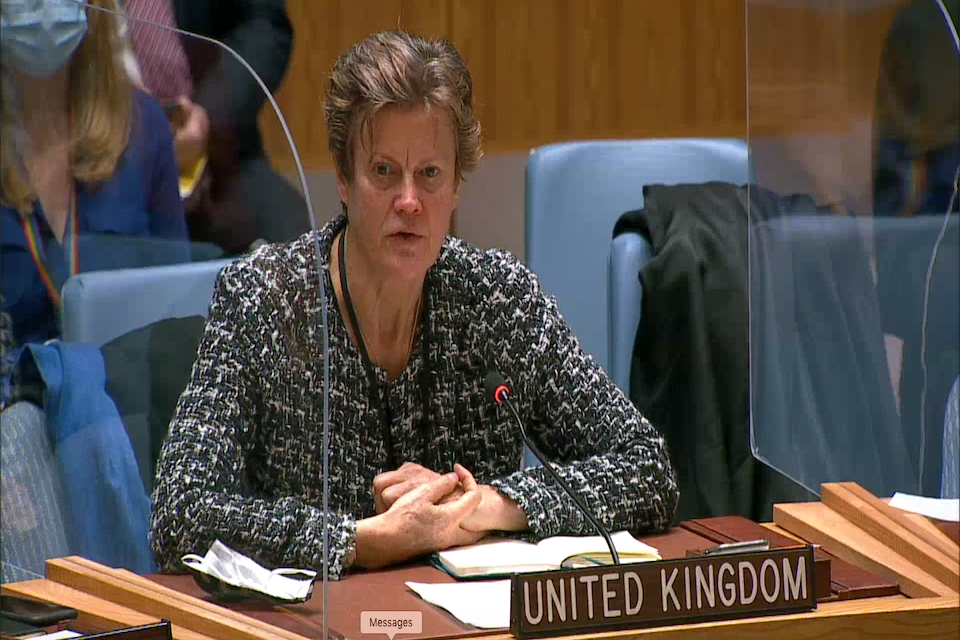Climate change has a direct impact on peace and security
Explanation of vote by Ambassador Barbara Woodward following the Security Council vote on the resolution on climate and security

Thank you Mr President, the United Kingdom also regrets the vote outcome.
For more than 75 years, across thousands of resolutions, this Council has sought to address the greatest challenges to international peace and security.
It is clear that climate change is such a challenge.
In the past few years, political consensus has caught up with the scientific consensus that climate change is caused by human activity and the burning of fossil fuels, and that these changes have a direct impact on peace and security.
Member States on the forefront of climate change are acutely aware of this. Like in the Sahel, where temperatures are rising 50% faster than global averages.
They know we don’t have the luxury of time.
Like the Small Island Developing States where sea levels are rising faster than global averages.
They know we don’t have the luxury of time.
Like mountain states whose glaciers are melting.
They know we don’t have the luxury of time.
At COP26, we saw that countries can work together to take decisive action. And today, well over 100 member states, including many developing countries, including countries outside the Security Council, co-sponsored this resolution.
We welcome steps taken by all Council members and Member States to combat climate change. But actions must follow words.
The Security Council can play its own part. More frequent reporting on the links between climate and security would be a good start.
Mr President, climate change is a threat to us all.
The consequences of inaction will be catastrophic. We must act now. We must all act now.
The United Kingdom strongly supported this resolution and will continue to support further action across the UN including in the Security Council to combat climate change.